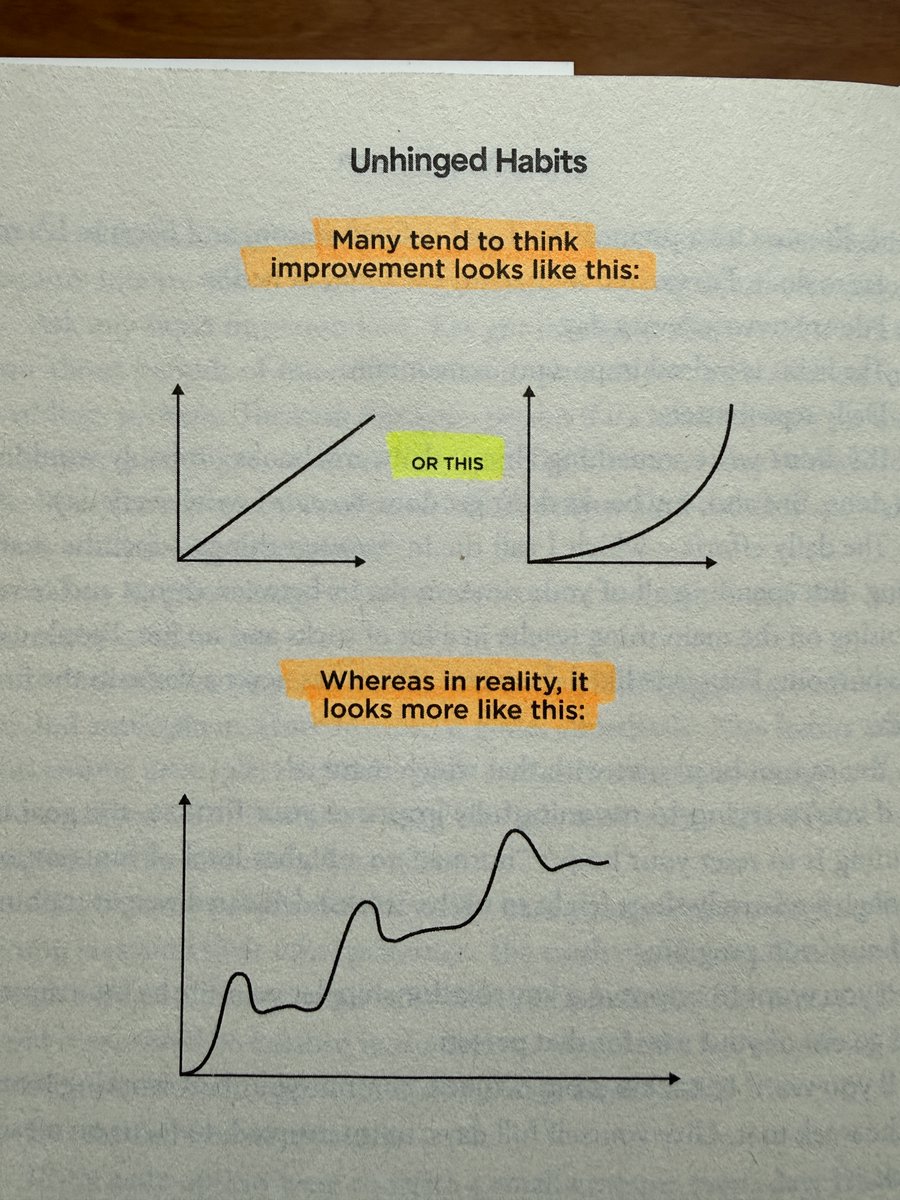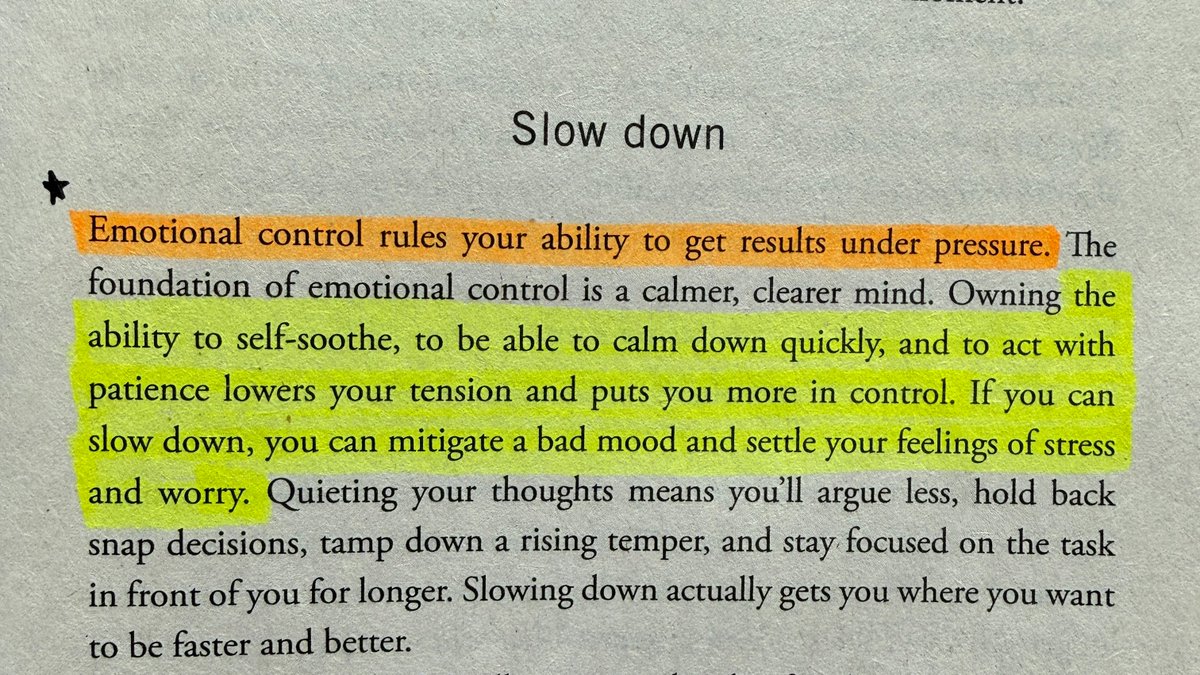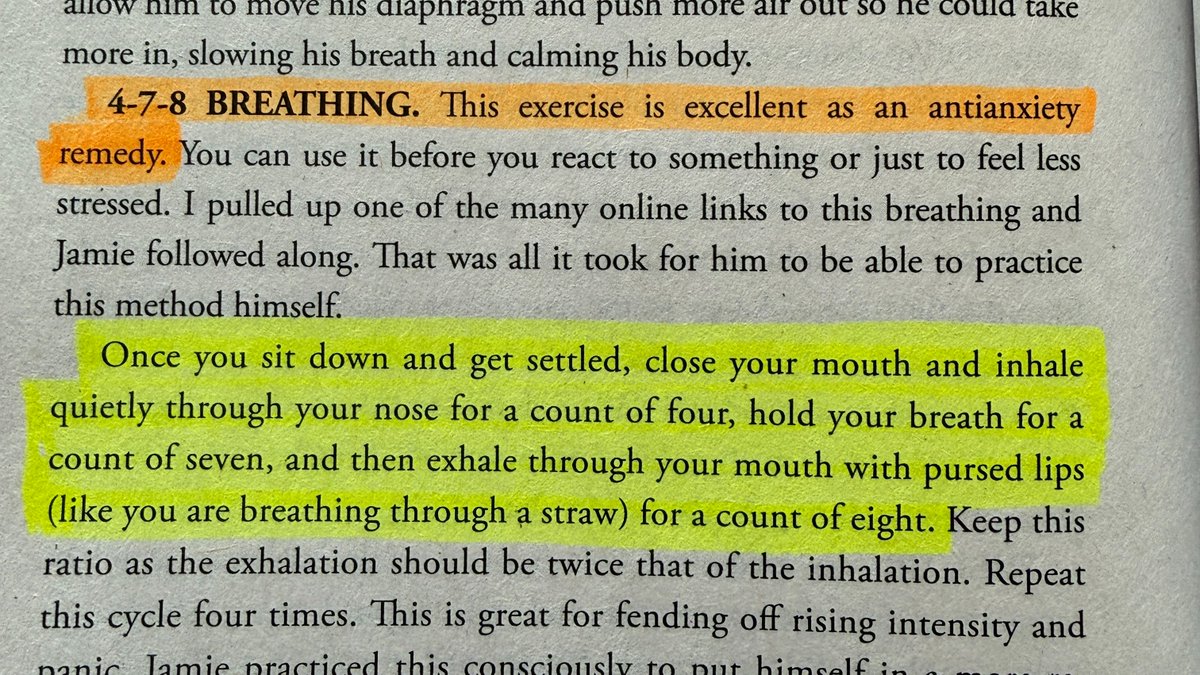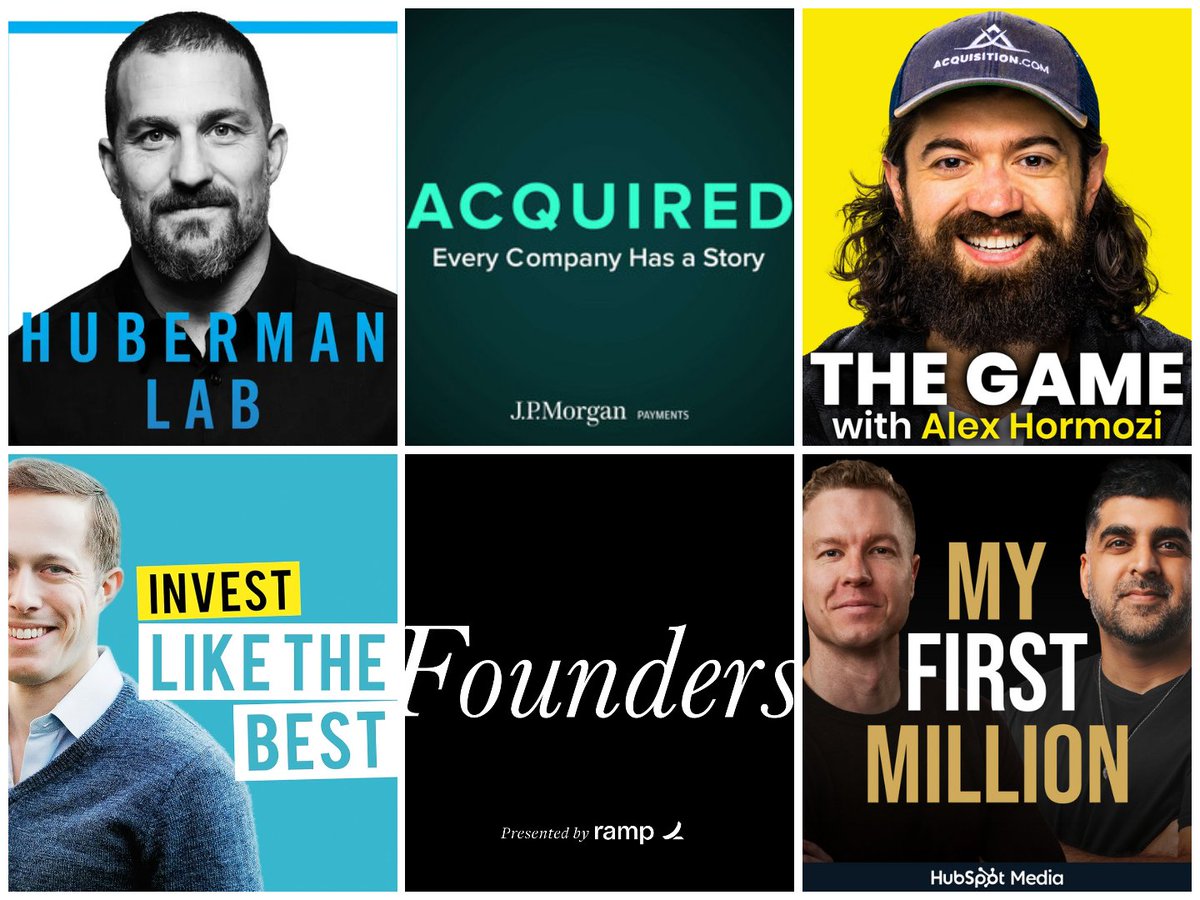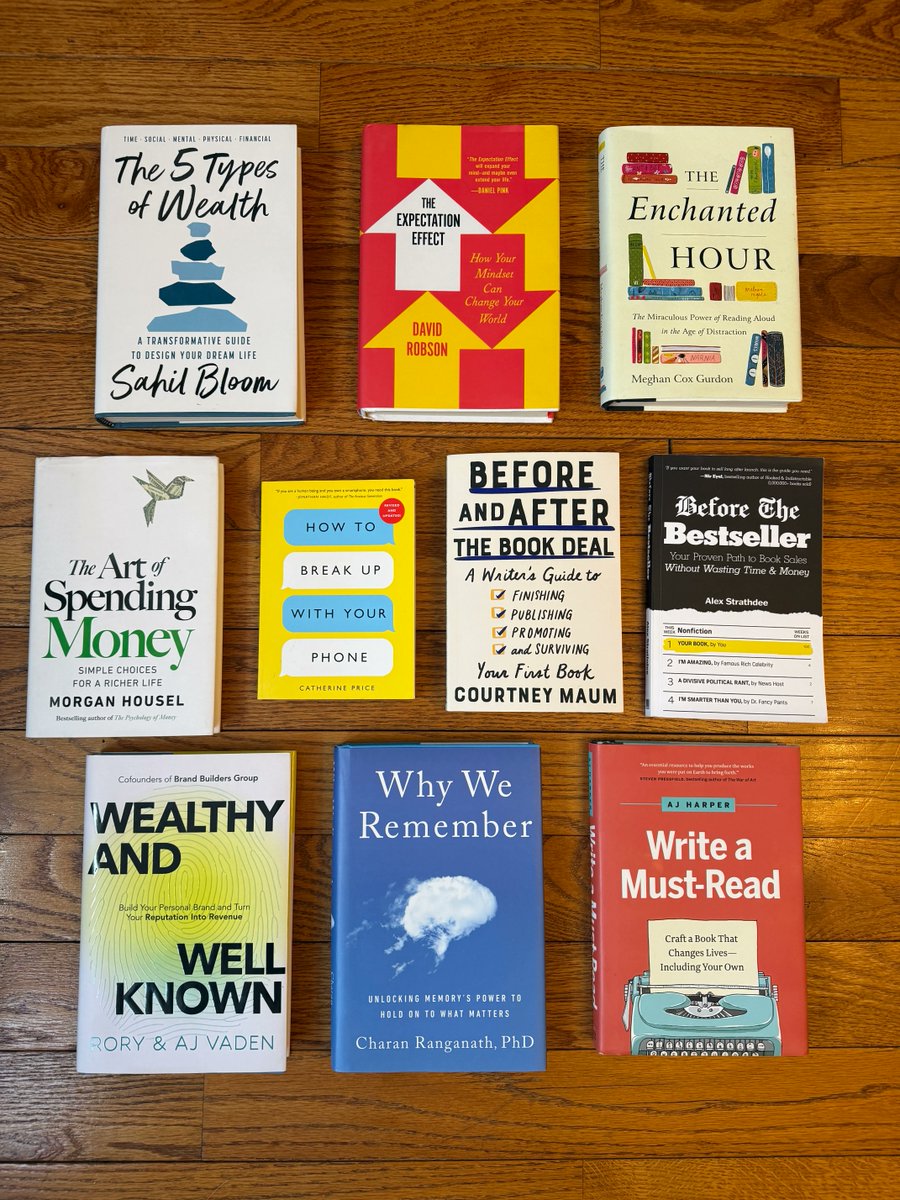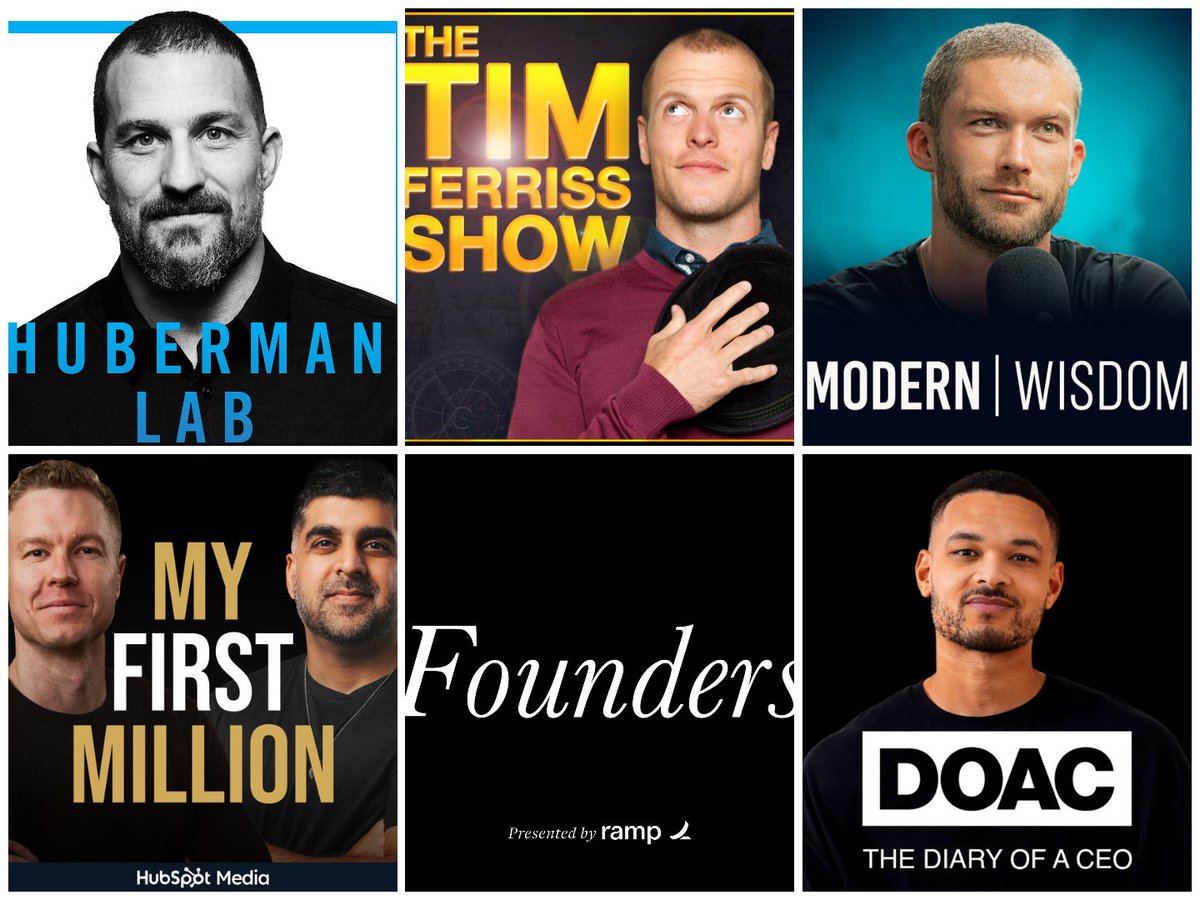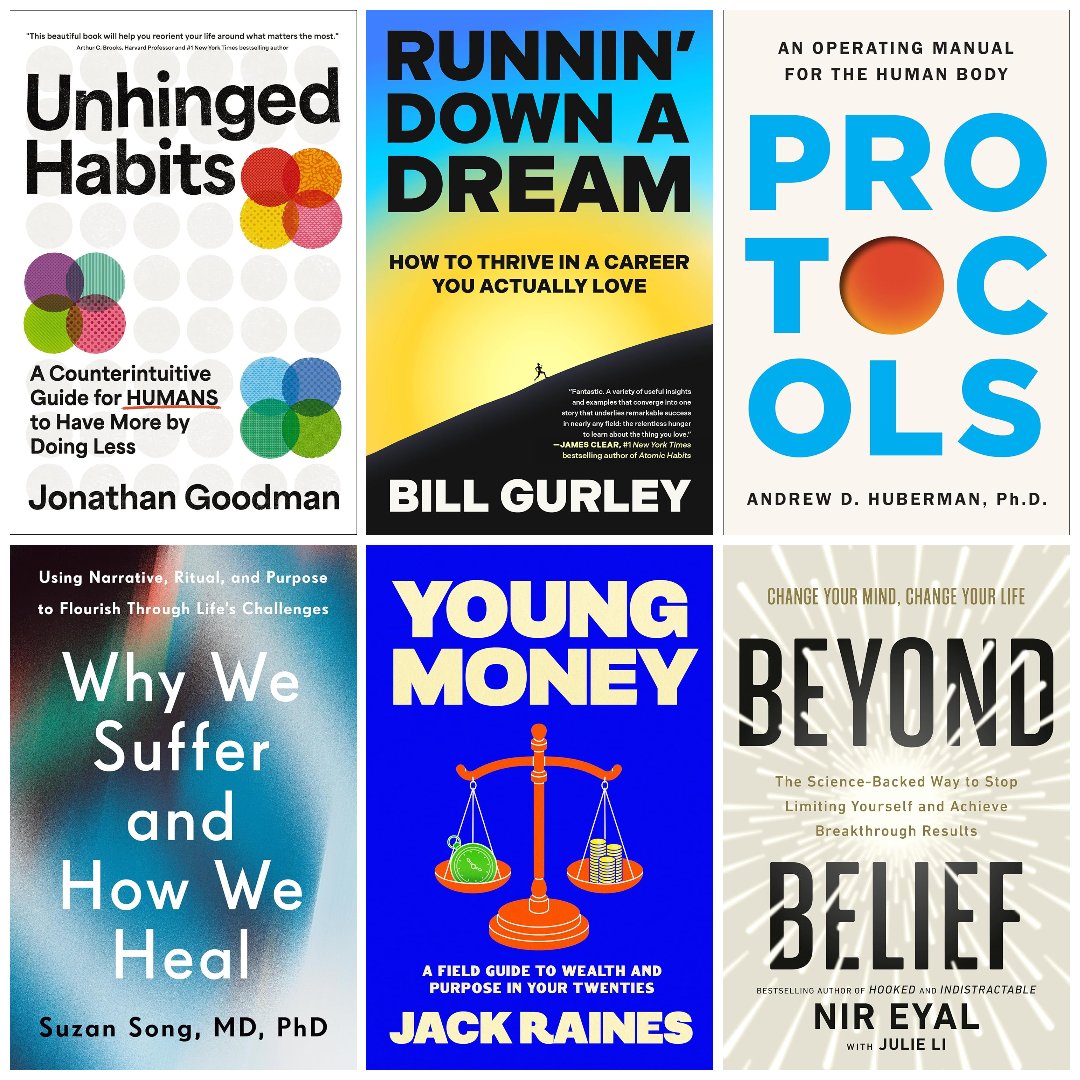Reading Tip:
• Go From IDK To Semi-Pro 🧠
This tip will help you go from knowing nothing about a topic to being well-versed in it.
• Go From IDK To Semi-Pro 🧠
This tip will help you go from knowing nothing about a topic to being well-versed in it.
1/
Step 1: Cluster read 3-5 books on a single topic
The average person reads 12 books a year & chances are those books are all in different subjects.
If you cluster read (multiple books on one subject), you’ll be miles ahead (in that area) of the vast majority of people.
Step 1: Cluster read 3-5 books on a single topic
The average person reads 12 books a year & chances are those books are all in different subjects.
If you cluster read (multiple books on one subject), you’ll be miles ahead (in that area) of the vast majority of people.
2/
Why read multiple books?
There’s no one definitive source that will have all the information you’re looking for on a topic.
By reading several books instead of just one, you’ll learn from multiple experts and gain access to different perspectives on the same domain.
Why read multiple books?
There’s no one definitive source that will have all the information you’re looking for on a topic.
By reading several books instead of just one, you’ll learn from multiple experts and gain access to different perspectives on the same domain.
3/
If all three authors share the same lesson in their books, you know that piece of information is likely foundational to the subject.
If there’s a disagreement among authors, that means you’re coming upon the edges of their knowledge & it’s up to you to think critically.
If all three authors share the same lesson in their books, you know that piece of information is likely foundational to the subject.
If there’s a disagreement among authors, that means you’re coming upon the edges of their knowledge & it’s up to you to think critically.
4/
Step 2: Create a master sheet with the top takeaways from those books
Taking the time to reflect and synthesize all of the knowledge you’ve gained will help you cement that information and serve as a handy review guide anytime you wish to revisit the topic.
Step 2: Create a master sheet with the top takeaways from those books
Taking the time to reflect and synthesize all of the knowledge you’ve gained will help you cement that information and serve as a handy review guide anytime you wish to revisit the topic.
5/
Your master sheet should be 1-3 pages long. Feel free to go beyond that page limit if you believe there are more nuggets of wisdom.
Spend time reflecting on which lessons are the most valuable & polish your master sheet so that it has the most important lessons.
Your master sheet should be 1-3 pages long. Feel free to go beyond that page limit if you believe there are more nuggets of wisdom.
Spend time reflecting on which lessons are the most valuable & polish your master sheet so that it has the most important lessons.
6/
Example reading clusters:
For behavior change:
• Atomic Habits by James Clear
• Tiny Habits by BJ Fogg
• The Power of Habit by Charles Duhigg
For dating:
• How To Be A 3% Man by Corey Wayne
• Mars and Venus on a Date by John Grey
• Models by Mark Manson
Example reading clusters:
For behavior change:
• Atomic Habits by James Clear
• Tiny Habits by BJ Fogg
• The Power of Habit by Charles Duhigg
For dating:
• How To Be A 3% Man by Corey Wayne
• Mars and Venus on a Date by John Grey
• Models by Mark Manson
If this tweet gets a lot of love, I'd be happy to share one or two master sheet examples.
And if you create your own master sheet, feel free to publish it as a thread and tag me.
What's a topic you'd like to go from IDK to Semi-pro in?
And if you create your own master sheet, feel free to publish it as a thread and tag me.
What's a topic you'd like to go from IDK to Semi-pro in?
• • •
Missing some Tweet in this thread? You can try to
force a refresh



